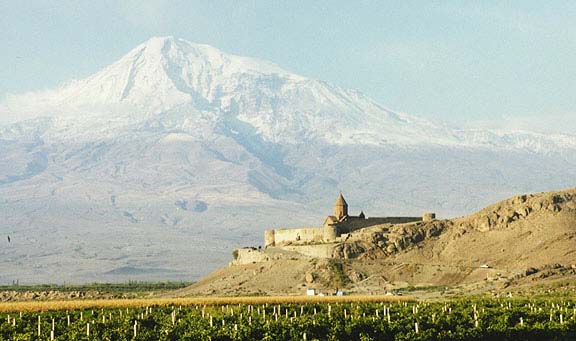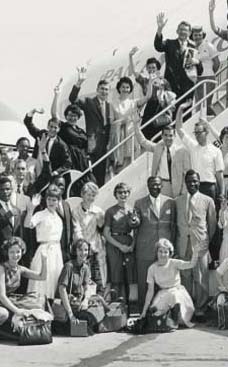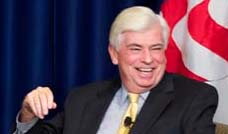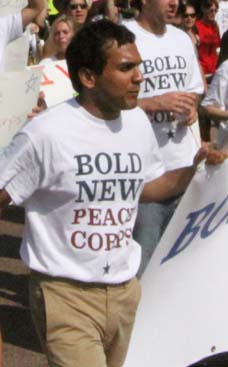
"I'm repeatedly faced with the challenge of expressing why I've remained engaged with Armenia and the Armenian people for the past 13 years. Armenians used to ask me with an incredulous tone in their voices: "Aystegh inch es gortsrel?" (What have you lost here?) Now they just assume I'm a Diasporan Armenian until they know otherwise. Through my travels, I have met Armenians around the world. I've stayed with Armenians in Beirut, Damascus, Los Angeles, and New York. I recently met Armenians in Ethiopia who showed me the same kind of hospitality I'd grown accustomed to in Armenia, sending bottles of wine and soujouk and other Armenian specialties. When talking with other odars, I explain that being part of the Armenian community is something akin to being part of the Rotary or a union. People look for, and look out for, each other. An Armenian I met on a street in Aleppo, Syria, said, "Kani vor du mer lezun es sovorel, yes kezi kpashtpanem. Yes kezi kpashtpanem!" (Since you've learned our language, I will protect you. I will protect you!) My internal response? Fantastic!"
RPCV Kristi Rendahl writes: How I Became an ‘Odar'
Rendahl: How I Became an ‘Odar'
By: Kristi Rendahl
I've been telling my Armenian story a lot lately. I'm repeatedly faced with the challenge of expressing why I've remained engaged with Armenia and the Armenian people for the past 13 years. Armenians used to ask me with an incredulous tone in their voices: "Aystegh inch es gortsrel?" (What have you lost here?) Now they just assume I'm a Diasporan Armenian until they know otherwise.
kristi1 300x258 Rendahl: How I Became an ‘Odar'
Kristi Rendahl will write a monthly column, "Odar's Corner," for the Armenian Weekly.
Most people, when they ask why you've lived and worked in a place like Armenia, don't really want to hear much more than a sound bite. Because of this, I am not accustomed to unfolding the whole story: my motivations, my inspirations, my hopes, and the stories that bring them all together. My monthly column for the Armenian Weekly, "Odar's Corner," is intended to provide just such an opportunity.
Of course, I didn't know that I was an odar (outsider/foreigner) until I met Armenia. My roots are in the prairies of north-central North Dakota, where I grew up on a farm founded by one of my great-grandmothers from Norway nearly 120 years ago. It is perhaps one of the more remote places in the U.S., with the nearest neighbors over a mile away and the school a 25-mile bus ride from home. You might think that sounds terrifying, but I loved it. Though I was intensely extroverted living among prairie grasses, gusty winds, and the occasional visit from a neighbor or UPS deliveryman, the farm was a place I felt healthy and free and, indeed, still do.
Just three weeks after graduating from a college in Minnesota with degrees in music and communications in hand, I boarded a plane bound for Armenia with the Peace Corps. My parents kept their anxieties mostly under wraps, and I was too naive to have any of my own. This was in 1997, a time when email was just becoming popular-before Skype, before Facebook, before inexpensive phone calls to the U.S. In my village, we received water twice a week for two hours, placed telephone calls in a central office, experienced regular power outages, and ate potatoes all winter. I'm no martyr for having lived here at that time-God knows the Armenians have seen far worse-but things were decidedly different then.
After the Peace Corps, I represented Habitat for Humanity International in Armenia to start the first affiliate there in collaboration with a group of highly capable people who went on to achieve remarkable things. My former colleagues have since transitioned into a Fuller Center for Housing affiliate, where they stay true to the zero percent loan principle that was a fundamental reason for my interest in this approach. During my fifth and final year of residence in Armenia, I worked with Made in Armenia Direct, a company that continues to inspire and promote excellence in Armenian artisanship.
Since those years, I have maintained my connections to Armenia and the Armenian people. Whether occasionally attending Badarak at St. Sahag Armenian Church in St. Paul, hosting Armenians in my home, speaking about my experiences at events, lending a hand with projects as they arise, leading teams to Armenia, or conducting independent research for my doctoral program, there is no getting around it: Armenia is in my heart, and it's here to stay.
Through my travels, I have met Armenians around the world. I've stayed with Armenians in Beirut, Damascus, Los Angeles, and New York. I recently met Armenians in Ethiopia who showed me the same kind of hospitality I'd grown accustomed to in Armenia, sending bottles of wine and soujouk and other Armenian specialties. When talking with other odars, I explain that being part of the Armenian community is something akin to being part of the Rotary or a union. People look for, and look out for, each other. An Armenian I met on a street in Aleppo, Syria, said, "Kani vor du mer lezun es sovorel, yes kezi kpashtpanem. Yes kezi kpashtpanem!" (Since you've learned our language, I will protect you. I will protect you!) My internal response? Fantastic!
You might find my perspective excessively positive, but I hope you'll also find it refreshing. I believe that little, if anything at all, can be built on negativity. It's contagious and generally serves to discourage, disappoint, and disillusion. It may have its purpose in the pursuit of justice, but if not balanced with positive, we risk paralysis and endless excuses for inaction.
Don't get me wrong: I'm no Pollyanna. I've seen the world in its horrific reality. I've seen children with distended bellies in Uganda, families squatting on former garbage dumps in Mexico, political repression in Syria, the legacy of apartheid in South Africa, the rampant presence of HIV/AIDS in Botswana, and the educational achievement gap in my own backyard of St. Paul. I can see the negative, but I refuse to let that be my only lens.
With that background out of the way, I invite you to join me on a journey of reflection. You will not find hard-hitting political analysis in this column. Instead, you will find honest recounts of the stories and insights that have endeared Armenia and the Armenian people to me. And maybe you'll be inspired to share some of your own.















